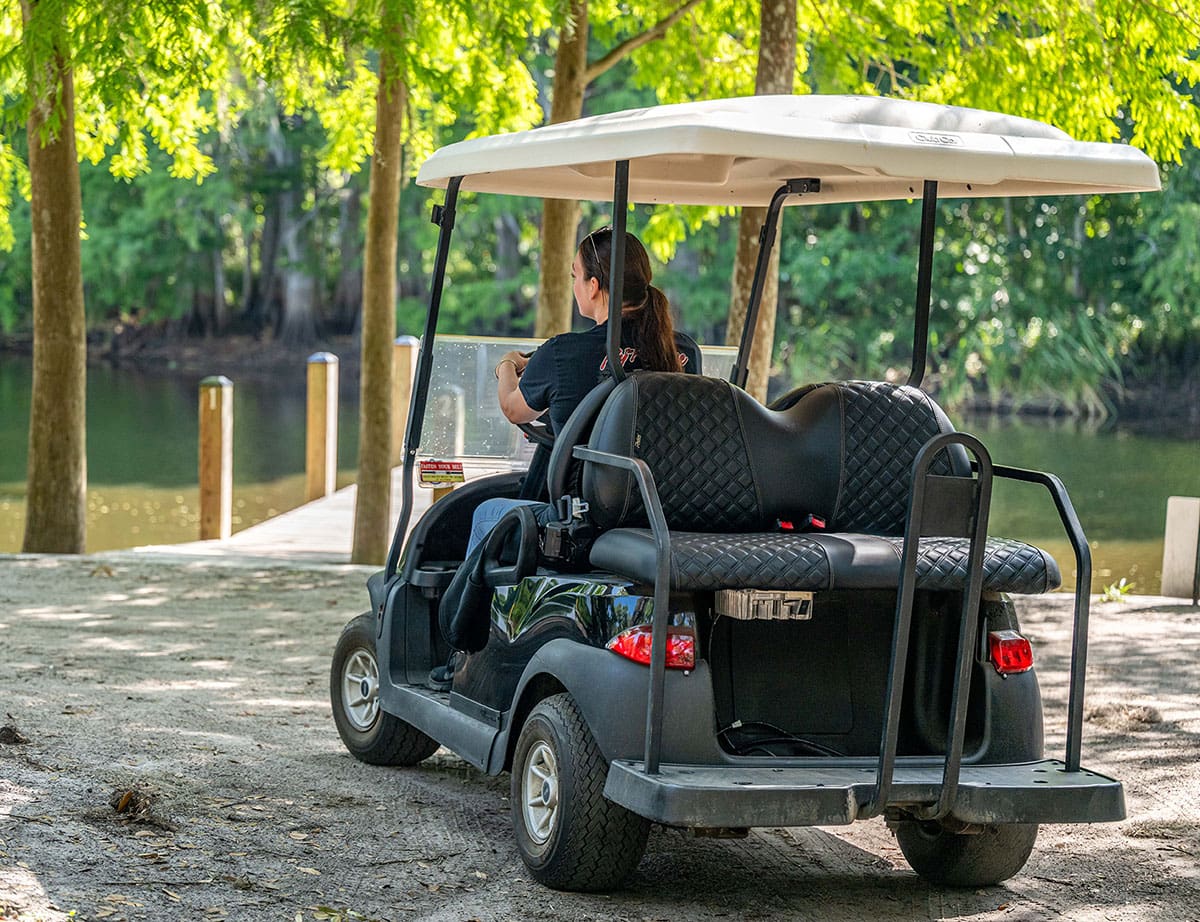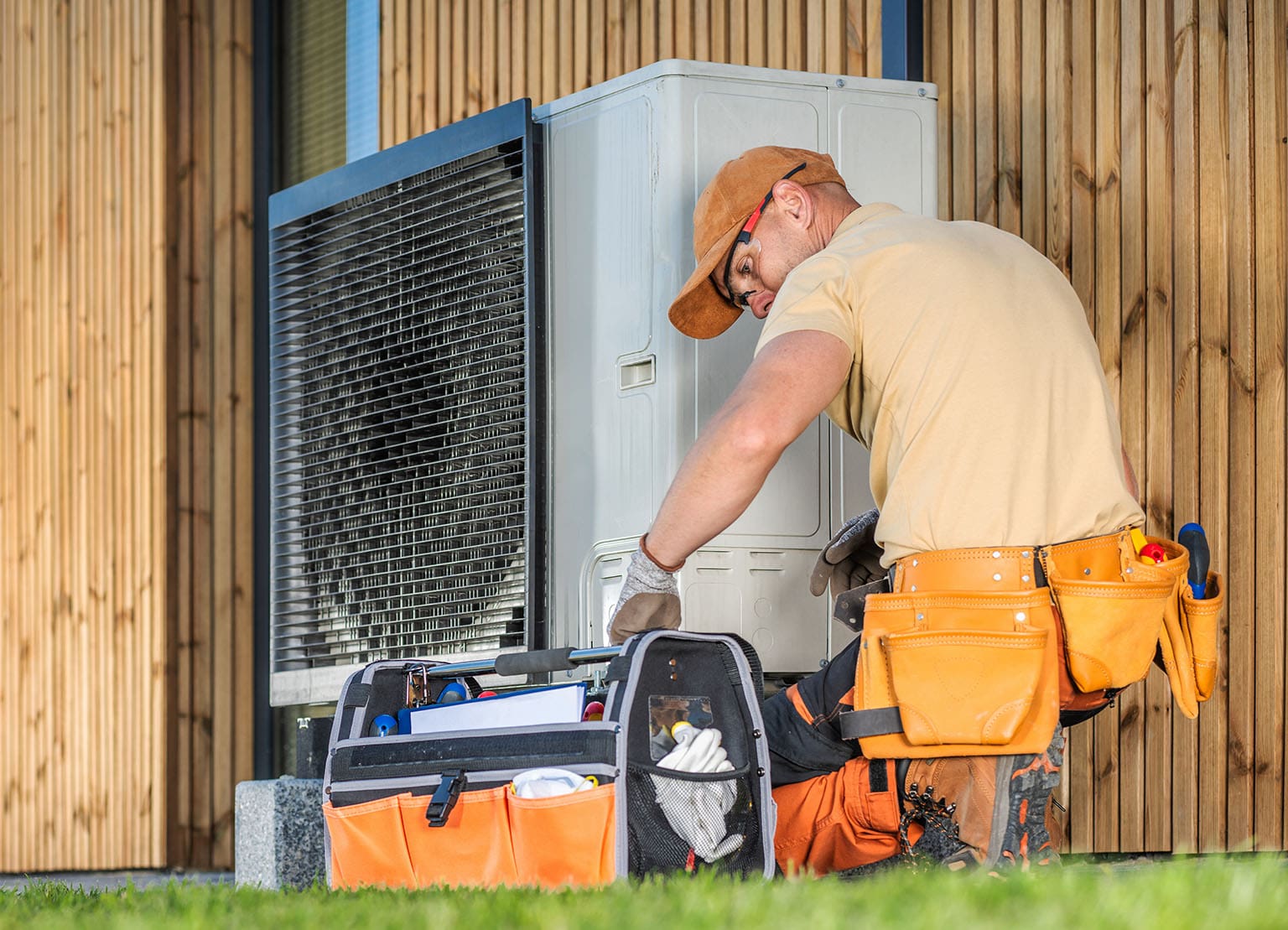Golf carts are no longer limited to fairways and country clubs. These lightweight vehicles increasingly appear in beach towns, retirement communities, college campuses, and suburban neighborhoods. As their popularity grows, questions arise: Are golf carts street legal? Where can you drive them? How should you insure them?
Here’s a guide to golf cart rules and coverage—including where they’re legal, whether they need to be street-legal, licensing requirements, and insurance options.
Where Can You Drive a Golf Cart Legally?
The answer depends on your location and how your golf cart is equipped. Federal law defers to states, and states often defer to local municipalities. Common scenarios include:
Private Property and Golf Courses
Driving on private land, such as your property, a golf course, or a gated community, typically requires no special legal approvals. You won’t need to register your cart or hold a driver’s license, and the property owner sets speed limits. However, accidents on private property can still result in liabilities. For example, if your golf cart tips over, hits a pedestrian, or causes property damage, insurance may be essential.
Residential Neighborhoods and Gated Communities
Retirement communities and resort developments often welcome golf carts, with internal roads designed for their use. These areas typically have lower speed limits and restricted access, making golf carts ideal for people seeking mobility without full-size vehicles. Local ordinances may impose requirements, such as:
- Minimum driving age (e.g., 14 or 16 years old)
- Safety features like lights and reflectors for nighttime use
- Limited hours of operation
- Special permits or decals for the community
Always check with the homeowner’s association or city website to ensure compliance.
Public Roads
Golf carts can sometimes be driven on public roads, but only under certain conditions:
- The road’s posted speed limit is 25–35 mph or lower.
- The golf cart is modified to meet safety standards, qualifying it as a Low-Speed Vehicle (LSV).
- The cart is registered with the DMV and insured.
Can You Drive a Golf Cart on the Sidewalk?
Typically, sidewalks are reserved for pedestrians unless local laws permit golf carts or LSVs in specific areas. Check local regulations for exceptions.
Street-Legal Golf Cart Requirements
To drive a golf cart on public roads, it may need specific modifications. Most states require certain safety features for a golf cart to be considered “street legal.” Common upgrades include:
- Headlights and taillights
- Turn signals
- Rearview mirrors
- Windshield
- Seat belts
- Horn
- A vehicle identification number (VIN)
Without these, golf carts are usually limited to private roads or designated crossings at intersections.
Golf Carts vs. Low-Speed Vehicles (LSVs)
Legal classification determines where and how your golf cart can be driven:
Golf Cart (Standard)
- Max speed: 15–20 mph.
- Registration: Not required for private property use.
- Uses: Golf courses, private land, and gated neighborhoods.
- Excluded from federal safety standards.
Low-Speed Vehicle (LSV)
- Top speed: 20–25 mph.
- Classification: Federally recognized motor vehicle.
- Requirements: Must meet Department of Transportation (DOT) standards, registered, insured, and driven by a licensed operator.
- Uses: Roads with posted speed limits up to 35 mph in most states.
If your cart is upgraded with features like lights, mirrors, and seat belts, it may need LSV registration to comply with legal requirements for public road use.
Golf Cart Insurance: What Policy Do You Need?
Many golf carts remain uninsured, even when used in situations that carry significant risk. The right insurance protects against liability and financial loss.
Homeowner’s Insurance (Limited Coverage)
For golf carts restricted to personal property, homeowner’s insurance may offer basic protection:
- Liability Coverage: For injuries caused on your property.
- Property Damage: For accidental damage caused by your cart to your home or other structures.
However, coverage is limited, often void if the cart is used off-property, and doesn’t include physical damages to the golf cart itself. Some policies offer endorsements for extended liability but confirm details with your insurer.
Auto Insurance (For Street-Legal Golf Carts and LSVs)
Registered LSVs often require the same insurance as regular vehicles:
- Liability Coverage: Required in most states for damages or injuries caused to others.
- Personal Injury Protection (PIP): Covers medical expenses for you and your passengers (mandatory in no-fault states).
- Uninsured/Underinsured Motorist Coverage: Protects you if an uninsured driver causes an accident.
- Collision and Comprehensive Coverage: Optional, covering damages due to accidents, theft, vandalism, or weather-related incidents.
Many auto insurers allow you to add LSVs as a vehicle under your policy, though standalone coverage may be necessary. Here’s more about the types of car insurance available.
Specialty Golf Cart Insurance (Best for Mixed or Recreational Use)
Ideal for golf carts used on both private property and public roads, specialty golf cart insurance provides the most comprehensive protection. Coverage typically includes:
- Bodily Injury Liability: Covers injuries you cause in a crash
- Property Damage Liability: Covers damage to other vehicles or structures
- Collision Coverage: Covers damage to your golf cart
- Comprehensive Coverage: Protects against theft, vandalism, and natural disasters
- Medical Payments: Covers medical costs regardless of fault
- Accessory Coverage: Protects custom features like wheels, stereos, and lift kits
This option works well for frequent users, owners of high-value or customized carts, and residents in golf cart–friendly communities
Why Golf Cart Insurance Matters
Even if insurance isn’t legally required in your state, it can save you thousands in the event of an accident. Risks include:
- Harming a pedestrian or cyclist
- A child falling off the cart and getting injured
- Theft of your cart or its components
- Collisions causing property damage, such as breaking a mailbox, fence, or parked car
Without insurance, you are personally liable for damages or injuries, which can be financially devastating.
Protect Your Golf Cart and Yourself
If you own a golf cart, follow these steps:
- Review state and local regulations.
- Confirm whether your vehicle is classified as a golf cart or LSV.
- Make required modifications for street-legal use.
- Register your cart, if necessary.
- Choose the right insurance coverage.
Let The Baldwin Group help you navigate your golf cart insurance needs. We’ll compare options, ensure compliance, and find coverage that fits your budget.
Get Started
Click here for a free quote or call us at 813.939.5288 to speak with an advisor.
For more information
We’re ready to help when you are. Get in touch and one of our experienced Baldwin advisors will reach out to have a conversation about your business or individual needs and goals, then make a plan to map your path to the possible.
This document is intended for general information purposes only and should not be construed as advice or opinions on any specific facts or circumstances. The content of this document is made available on an “as is” basis, without warranty of any kind. The Baldwin Insurance Group Holdings, LLC (“The Baldwin Group”), its affiliates, and subsidiaries do not guarantee that this information is, or can be relied on for, compliance with any law or regulation, assurance against preventable losses, or freedom from legal liability. This publication is not intended to be legal, underwriting, or any other type of professional advice. The Baldwin Group does not guarantee any particular outcome and makes no commitment to update any information herein or remove any items that are no longer accurate or complete. Furthermore, The Baldwin Group does not assume any liability to any person or organization for loss or damage caused by or resulting from any reliance placed on that content. Persons requiring advice should always consult an independent adviser.






